Filter by

White gold :the commercialisation of rice farming in the lower mekong basin
This open access book is about understanding the processes involved in the transformation of smallholder rice farming in the Lower Mekong Basin from a low-yielding subsistence activity to one producing the surpluses needed for national self-sufficiency and a high-value export industry. For centuries, farmers in the Basin have regarded rice as “white gold”, reflecting its centrality to their…
- Edition
- -
- ISBN/ISSN
- 9789811509988
- Collation
- XXVIII, 456 p. ; ill.
- Series Title
- -
- Call Number
- 633.18 CRA w
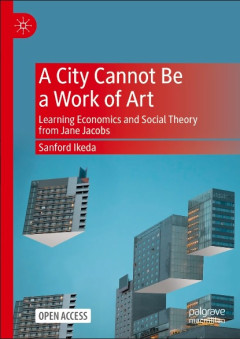
A city cannot be a work of art learning economics and social theory from jane…
This open access book connects Jane Jacobs's celebrated urban analysis to her ideas on economics and social theory. While Jacobs is a legend in the field of urbanism and famous for challenging and profoundly influencing urban planning and design, her theoretical contributions – although central to her criticisms of and proposals for public policy – are frequently overlooked even by her most…
- Edition
- -
- ISBN/ISSN
- 9789819953622
- Collation
- XXV, 400 p
- Series Title
- -
- Call Number
- 720.94
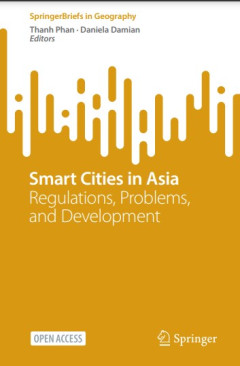
Smart Cities in Asia:regulations, problems, and development
This open access book examines different aspects of smart cities, including technology, urban development, sustainable development, finance, and privacy and data protection. It also covers a wide range of jurisdictions in Asia-Pacific: Hong Kong, Indonesia, Malaysia, Singapore, Thailand, and Vietnam. The book consists of two main parts. The first part includes general chapters that conceptualiz…
- Edition
- -
- ISBN/ISSN
- 9789811917011
- Collation
- ix; 124p; ill.
- Series Title
- -
- Call Number
- 307.12160951 SMA T
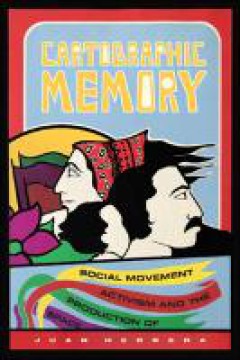
Cartographic memory :social movement activism and the production of space
Juan Herrera maps 1960s Chicano Movement activism in the Latinx neighborhood of Fruitvale in Oakland, California, showing how activists there constructed a politics forged through productions of space.
- Edition
- -
- ISBN/ISSN
- 9781478007494
- Collation
- ix, 265.; ill.
- Series Title
- -
- Call Number
- 305.86872079466 CAR h
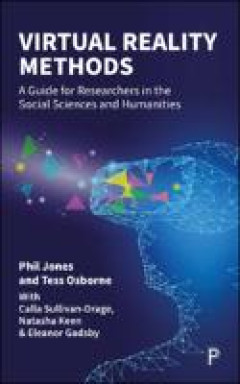
Virtual reality methods:a guide for researchers in the social sciences and hu…
Since the mid-2010s, virtual reality (VR) technology has advanced rapidly. This book explores the many opportunities that VR can offer for humanities and social sciences researchers. The book provides a user-friendly, non-technical methods guide to using ready-made VR content and 360° video as well as creating custom materials. It examines the advantages and disadvantages of different approach…
- Edition
- -
- ISBN/ISSN
- 9781447360773
- Collation
- vii, 159p : ill.
- Series Title
- -
- Call Number
- 001.30721 PHI v
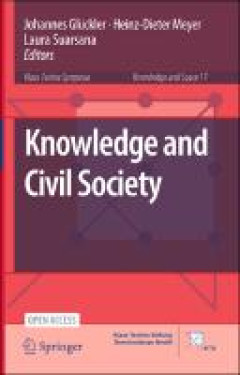
Knlowledge and Civil Society
This open access book focuses on the role of civil society in the creation, dissemination, and interpretation of knowledge in geographical contexts. It offers original, interdisciplinary and counterintuitive perspectives on civil society. The book includes reflections on civil and uncivil society, the role of civil society as a change agent, and on civil society perspectives of undone science. …
- Edition
- -
- ISBN/ISSN
- 9783030711474
- Collation
- 317p. : ill
- Series Title
- -
- Call Number
- 320.05 KNL k
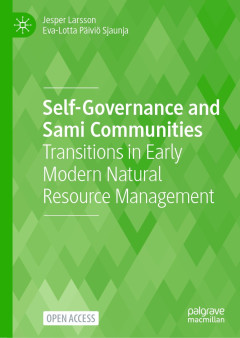
Self-governance and sami communities :Transitions in Early Modern Natural Res…
This open access book uses an interdisciplinary approach that not only focuses on social organization but also analyzes how societies and ecological settings were interwoven. How did early modern indigenous Sami inhabitants in interior northwest Fennoscandia build institutions for governance of natural resources? The book answers this question by exploring how they made decisions regarding natu…
- Edition
- -
- ISBN/ISSN
- 9783030874988
- Collation
- xvi; 247 PG; ill.
- Series Title
- -
- Call Number
- 333.70899457 SEL s
 Computer Science, Information & General Works
Computer Science, Information & General Works  Philosophy & Psychology
Philosophy & Psychology  Religion
Religion  Social Sciences
Social Sciences  Language
Language  Pure Science
Pure Science  Applied Sciences
Applied Sciences  Art & Recreation
Art & Recreation  Literature
Literature  History & Geography
History & Geography